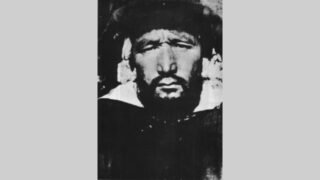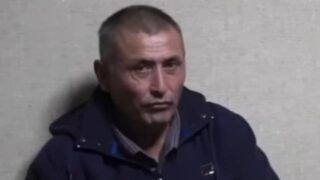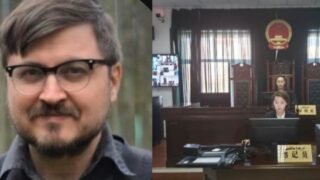Soon in English, the German best seller gives voice to a woman whose testimony about the transformation through education camps in Xinjiang cannot be impeached.
by Massimo Introvigne


A journalist with a passion for human rights, Alexandra Cavelius will launch in 2021 The Chief Witness, the English version of her bestselling German book about Sayragul Sauytbay. It is a story the readers of Bitter Winter know well. Bitter Winter was among the first media outlets that told the story of Sayragul, an ethnic Kazakh who survived the dreaded transformation through education camps and escaped to Kazakhstan, where a court finally determined she should not be deported back to China. Harassed by the CCP even in Kazakhstan, she fled to Sweden on June 3, 2019. On March 4, 2020, she was honored among the “Women of Courage 2020” in Washington DC. Now, Alexandra Cavelius tells her extraordinary story with all the details.


Alexandra, you have been working as a freelance author and reporter for many years. What are your main interests?
My main interest is political non-fiction, often focusing on strong and courageous women in the hot spots of the world. I came to the biography of Sayragul having already written about other women of courage.
Your biography of Sayragul, “The Chief Witness,” is already in its fourth edition in German and will be published in English in May. Can you briefly summarize its content?
It is the story of how Sayragul Sauytbay was forced by the Chinese Communist Party (CCP) to work as a teacher in one of the numerous concentration camps that are spread over East Turkestan (Chin. Xinjiang) like a net. Despite overwhelming evidence, the CCP continues to call them euphemistically “vocational training camps.” In fact, however, these are the largest mass internments since the end of World War II. “Life without freedom means running for life in hell,” says Sayragul Sauytbai about her homeland, which the CCP has transformed into the largest police state in the world.
Since when and why has the CCP been oppressing the Muslims?
In 1949, Chairman Mao annexed the country by force and renamed it “Xinjiang” (New Frontiers). This region is not only very rich in mineral resources, but is also strategically important as “gateway to the West.” It is directly situated on the “New Silk Road,” which is the biggest international infrastructure project. In theory this province is autonomous, but in reality, it is a country full of slaves. The Muslim ethnic groups that have lived there for centuries, such as Uyghurs, Kazakhs, or Tatars, will have soon lost everything in their ancestral homeland that they have possessed for centuries. Their freedom, rights, traditions, language, faith, culture …
How did this book come about?
Almost 15 years ago, I wrote a bestselling book about the Uyghur leader Rebiya Kadeer, who was nominated several times for the Nobel Prize (Die Himmelsstürmerin, Heyne). Shortly before Ms. Kadeer came to see me for the interviews, she had been the victim of an assassination attempt, which she almost did not survive. Traces led the FBI in Washington to the Chinese Embassy. Even at that time, the situation in East Turkestan was already dramatic, but today the situation has worsened many times over for the Muslims. The CCP wants to transform them into perfect Chinese. “Those who do not assimilate will be eliminated,” Sayragul Sauytbay observed.


How did you come into contact with Sayragul Sauytbay?
In 2018, I had read a short article on the website of the “Society for Threatened People” about Sayragul Sauytbay. After her escape from Xinjiang, the government had detained this former school headmistress in Kazakhstan for illegal border crossing. At the time, it was unclear whether she would be deported back to China. That would have meant her death sentence. In the end, the intervention of international human rights organizations and the largest street protests ever seen in autocratically ruled Kazakhstan saved Ms. Sauytbay’s life. When she was in Sweden with her family, I contacted her.
Was it not difficult for you to write about such a tragedy?
Writing such a story takes a lot of strength. I did the interviews partly in Germany and partly in Sweden. We had to take many hurdles to get the book published.
It is well known that the CCP punishes critics. Aren’t Sayragul Sauytbay and yourself afraid of retaliation after publishing such a deeply shocking report?
To this day, Beijing is still threatening to silence Sayragul Sauytbai. “Think of your children,” the cadres keep warning her over the phone. What worse could you threaten a mother with? Beijing uses all means to prevent the truth about the Party’s cruelty coming to light. Of course, the cadres also try to disrupt the work of journalists like me, for example by making frequent call from numbers recognizable as Chinese. When I pick up the phone, for example, a robot voice sends me goodbye greetings. Once, I also received emails with Koranic verses saying that all “Kafirs” like me should have their heads cut off. It was supposed to look as if these threats came from radical Muslims. But on closer inspection, they came from Beijing. I am not intimidated by such things. But it makes me realize once again what a great privilege it is to live in a democratic country like Germany.
The book is very compelling. Once you start, you cannot put it down. How did you develop this structure?
Deeply traumatized people like Sayragul often relate in a disorganized way when telling the first time their whole story, because their memory only gradually releases more and more images from the past. At the end of the interviews, there is a puzzle of mosaic stones, which I have to piece together to tell a flowing story. When I asked Sayragul if she ever found peace and sleep, she told me about the women imprisoned in the camp who stood around her bed every night with their shaved heads, eyes wide open, begging her, “Please save us!” At that moment, I knew I had to start the book with that passage. Once I have found the beginning, the rest develops by itself.


What do you hope will be the international reception of your book?
I wish that politicians and businesspeople would find the courage to openly name the injustice, and finally take the consequences. I wish that deeply traumatized women like Sayragul could sleep again without nightmares. I wish that this horror would end. Beijing has set up a fascist system in Xinjiang. Who would know better than us Germans how quickly such a spark can turn into a worldwide conflagration?
Do you believe that the CCP is a danger to the whole world?
If our world continues to close its eyes to this cultural genocide, the CCP’s power will continue to expand. One day we will no longer be able to control its effects and wake up in the same nightmare as the people of East Turkestan. The concentration camps are proof that Beijing does not hesitate to eliminate dissidents to reach its goal, which is an autocratic world ruled by the CCP. First it was Tibet, then Xinjiang, followed by Hong Kong. Tomorrow it will be Taiwan—and then the rest of the world? For Ms. Sauytbay and me this book is a wake-up call! At this moment, innocent children, women, men, and old people are again being put in chains. Their heads are shaved bald, they are raped, tortured, forced to take heavy drugs, forcibly sterilized, submitted to all sort of psychological pressures … For us “Never again” must mean take over responsibility!









